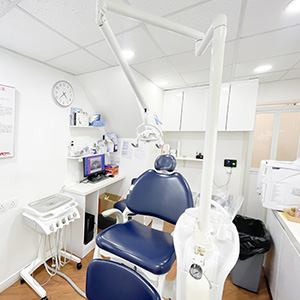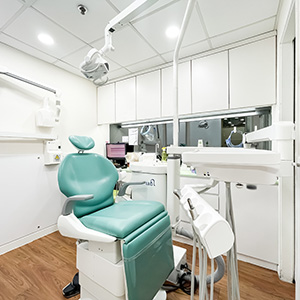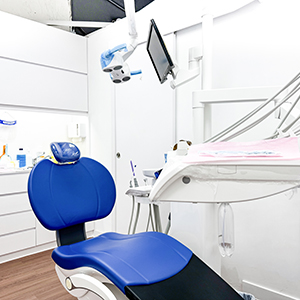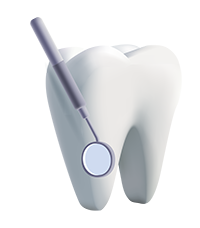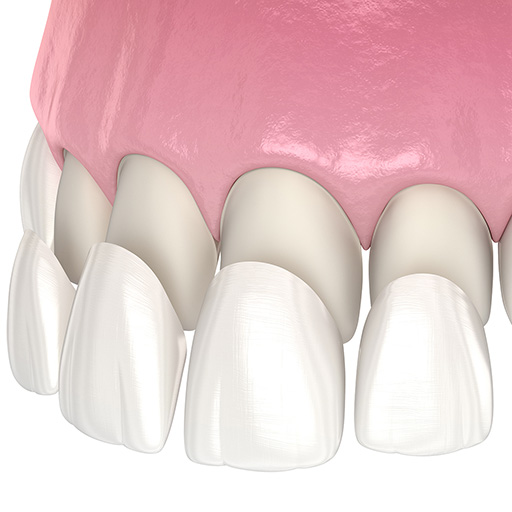
Dental Veneer
Dental veneers are thin layers of porcelain bonded to the teeth. They are suitable for teeth that have been traumatized, fractured, discolored, misshapen, or misaligned. Due to the semi-translucent nature of porcelain veneers, they allow the natural color of the underlying teeth to shine through, resulting in a very aesthetically pleasing and natural appearance.
Compared to dental crowns, porcelain veneers cause less damage to the teeth and do not alter the original biting and chewing functions, leading to quicker adaptation.
Dental Veneer Treatment Procedure:
- Consultation and Diagnosis: Firstly, you need to consult with a dentist for discussion and diagnosis to determine if dental veneers are suitable for your needs and expectations.
- Color Selection: You can choose dental veneers with your dentist that match the natural shade of your teeth.
- Dental Impressions: The dentist will take a 3D impression to analyze and preview the desired outcome using computer technology.
- Installation: Once the porcelain veneers are fabricated, the dentist will bond the 0.5 to 0.7 millimeter-thin porcelain veneers to your teeth using dental adhesives and make any necessary adjustments for comfort. The entire process is painless.
- Post-Installation Care: The dentist will provide you with advice on how to maintain and clean your dental veneers to ensure their durability and aesthetics.
Please note that the above steps may vary depending on individual circumstances, and the dentist will make adjustments based on your specific situation.
Q&A
- Will I Experience Pain During The Dental Veneers Treatment?
- Can I Get Veneers On Just My Front Two Teeth?
- How Long Do Veneers Last?
- Do I Still Need Regular Teeth Cleaning After Having Porcelain Veneers?
- What Are The Precautions For Porcelain Veneers Treatment?
Generally, undergoing a dental veneer treatment is not painful. It involves minimal tooth preparation and discomfort.
Yes, you can. Each veneer is custom-made, so getting a single veneer is possible.
Typically, you can expect porcelain veneers to last up to 20 years, but regular upkeep is required to ensure they last as long as possible. Porcelain veneers can chip quite easily, often when a tooth is knocked by a mug or cracks when eating hard food.
Yes, even after getting porcelain veneers, regular teeth cleaning is still necessary. Porcelain veneers only address cosmetic concerns, while regular cleanings help maintain oral and gum health. Teeth cleaning will not affect the effectiveness of the veneers.
Typically, porcelain veneers do not require special post-treatment care. However, to ensure durability, consider the following care points:
- You can eat, chew, and smile immediately after the treatment. There may be a slight sensitivity, but it should fade within a few days.
- If you grind your teeth, especially at night, it’s advisable to wear a night-time mouth guard to protect your veneers.
- Avoid biting hard foods like bones.
- Refrain from biting nails or ice to prevent damage to the teeth.
- Maintaining good oral hygiene by brushing twice a day and flossing.
- Although your porcelain veneers themselves aren’t subject to tooth decay, when a cavity and decay damage the underlying tooth structure, this can also damage the veneer. In many cases, after a cavity is repaired, the tooth can no longer support a new veneer.
- Promptly consult a dentist if you notice any cracks or detachment of the porcelain veneers.
Porcelain veneers may not be suitable for everyone, and it’s important to ensure gum health before undergoing the treatment. It’s recommended to schedule an appointment with a dentist for evaluation before considering any treatment options.







